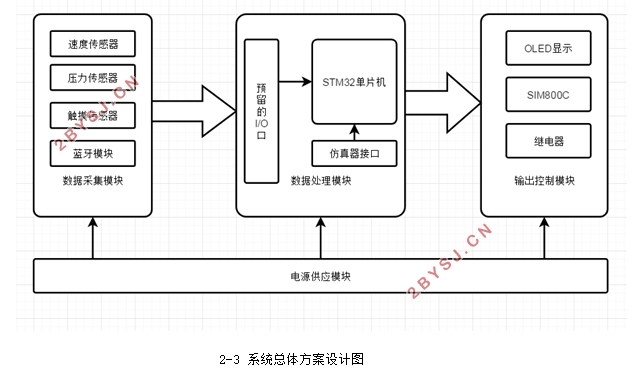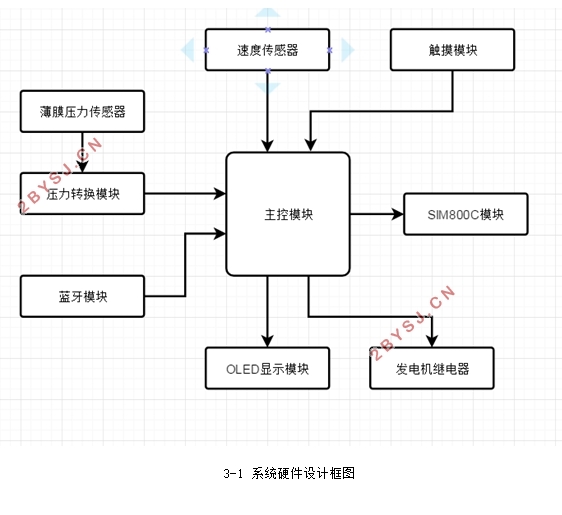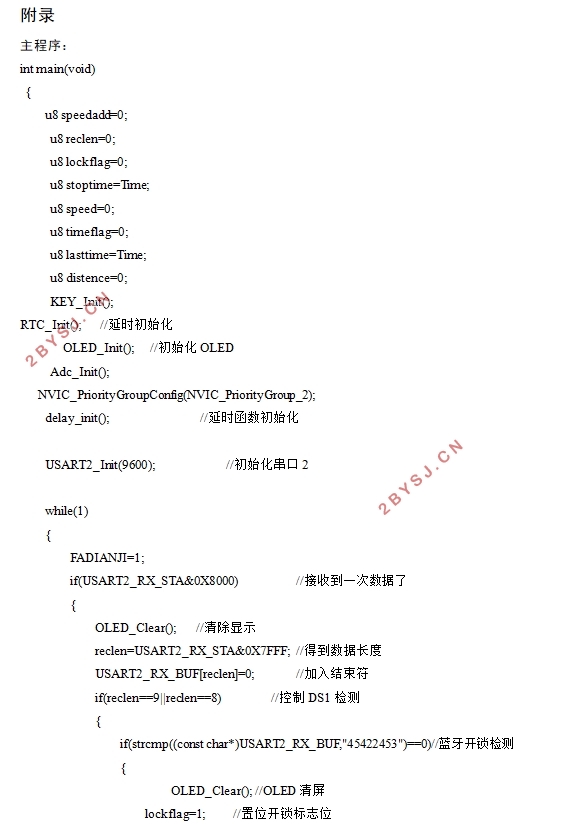智能单车自行车控制系统的设计
无需注册登录,支付后按照提示操作即可获取该资料.
智能单车自行车控制系统的设计(论文13000字)
摘要:单人自行车是一种非常常用的交通工具,它有其他交通工具不可替代的优点。随着科学技术的发展,在万物皆智能的时代,传统单车也必将朝着智能化的方向发展,本文根据本人日常使用单车的经验,重点围绕单车的防盗性能,使用效率等方面,设计了一套单车智能控制系统。
本设计综合运用传感器,单片机提供了四种改进功能。包括无人用车后自动上锁的功能、智能储电的功能、蓝牙解锁功能和手机短信报警功能。主要用到了STM32单片机,GSM模块,蓝牙模块以及相关的传感器。
本设计解决了自动关锁等传统单车及大多数智能单车没有解决的问题,利用传感器及GSM模块为用户提供更为准确实时的报警信息,提升了单车的防盗性能和使用效率。
关键字:stm32f103单片机 蓝牙通信 GSM通信 传感器
Bicycle intelligent control system
Abstract:Single bicycle is a very popular traffic tool and has an irreplaceable advantage in other forms of transportation. With the development of science and technology, many things have entered into the age of intelligence and the traditional bicycle will also be developing in an intelligent direction. Based on the experience of daily use of bicycle, this paper focuses on the anti-theft performance, efficiency and other aspects of cycling so as to design a set of intelligent control system for bicycles.
This design uses the sensor and the singlechip to provide four kinds of improvement functions. It includes the function of automatic locking after nobody use the bicycle, the function of intelligent storage, the function of bluetooth lock and the function of SMS alarm. The system mainly uses STM32 singlechip, GSM module, bluetooth module and related sensors.
This design solves the problem that the traditional bicycle and most intelligent bikes are not solved. The design uses sensor and GSM module to provide more accurate and real-time alarm information for users which improves the anti-theft performance and efficiency of the bicycle.
Key word: stm32f103 Bluetooth GSM Sensor



目 录
1绪论 1
1.1 选题背景与意义 1
1.2本文需解决的问题 1
1.3本章小结 2
2设计方案论证与选择 3
2.1 自动上锁功能的实现方案 3
2.2 智能发电模块方案论证 3
2.3报警模块方案设计 4
2.4解锁模块方案设计 5
2.5系统总体方案设计 6
2.6本章小结 7
3系统硬件设计 8
3.2主控模块 9
3.3显示模块OLED 11
3.4测速模块 12
3.5触摸模块 12
3.6压力检测模块 13
3.7蓝牙模块 13
3.8 GSM模块 14
3.9本章小结 15
4系统软件设计 16
4.1 软件平台介绍 16
4.2系统总体程序设计 16
4.3 GPIO初始化 17
4.4测速模块程序设计 19
4.5 OLED显示模块程序设计 22
4.6蓝牙模块程序设计 25
4.7 GSM模块程序设计 26
4.8本章小结 26
第五章 总结与展示 27
5.1实物展示 27
5.2 全文总结 29
5.3工作展望 29
参考文献 31
致谢 32
